- Upset coffee - 25th February 2026
- Not acting the part - 24th February 2026
- Death wish - 23rd February 2026

During 23 years with the BBC, and a 41 year journalistic career (when he was trained to use clear and simple language, avoiding jargon), for our Editor, Welshman Phil Parry, major political stories have always been central, and this is emphasised now by the hugely-important election in Canada today, as well as the different approach taken there to the one in the UK, towards Donald Trump.
These things MATTER!
It appears that Mark Carney (a former Governor of the Bank of England [BoE]) has turned round the fortunes of the Liberal Party he leads, which may now be on course to win the Canadian federal election today – and media commentators are saying the man who must take credit for this is Donald Trump!
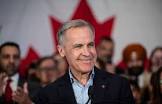
The polling shows Mr Carney has the momentum to be victorious.
The former Bank of Canada (BoC) and BoE governor has an impressive CV in international finance that includes senior roles at Goldman Sachs and Brookfield Asset Management. He has pitched himself as a stable, experienced leader to contend with President Trump.

But therein lies the key issue, because Mr Carney has taken a very different approach towards President Trump, from our own UK Prime Minister.
He has decided to stand up to him (note President Trump’s talk of Canada being “the 51st state), whereas our own Sir Keir Starmer has opted for keeping him onside and mollifying him.
The jury is out on which policy is more successful in the long-term, although it looks as though politically Mr Carney’s approach has worked.

Under his leadership the Liberal Party has enjoyed a historic surge in the polls, surpassing the Conservative Party, which had led surveys of voting intention since April 2022.
Nationwide opinion polls give a good sense of Canada’s political climate.
However under the country’s first-past-the-post system (as in voting in UK General Elections [GE], as well as in part of the process to elect people to the Welsh Parliament/Senedd Cymru [WP/SC]) parties win individual constituencies (known as ridings) by getting the most votes in that constituency.

For the past two elections the Conservatives (whose votes are concentrated in the west of the country) have won more than the Liberals but not always the most seats.
Yet now Mr Carney’s party could win the most seats.
National polls show that Canadians trust Mr Carney more than opposition parties with handling President Trump.
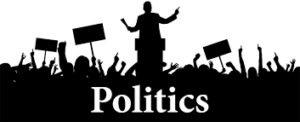
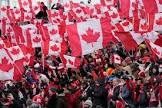
It appears that President Trump’s belligerence (as well as his ferocious use of tariffs against his country’s northern neighbour), may lie behind the change by prompting a wave of Canadian patriotism, and Mr Carney is the beneficiary.
This is intriguing because it highlights the success, or otherwise, of different attitudes towards President Trump.

Is it better to stand up to him, or stroke his ego?
These alternative ways of working with him are put centre stage by the two leaders’ statements after the imposition of US Tariffs.
Sir Keir, for example, seemed very measured in his respose.
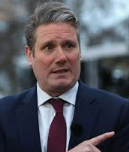
He said that the tariffs will “clearly” have an economic impact, and that “just as with defence and security” the world was “entering a new era” in economy and trade.
“I want to be crystal clear”, Sir Keir declared tediously, and this is unlikely to send people to the barricades, “…we are prepared. Indeed, one of the great strengths of this nation is our ability to keep a cool head“.
MPs might have been excused snoring as he told them: “My instinct is we shouldn’t jump in with both feet to retaliate”.
The UK has spent weeks working on a trade deal with the US to avoid the full impact of the level of tariffs introduced on countries such as Canada, and it was clear that Sir Keir didn’t want to undo all this work.
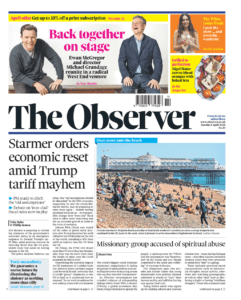 Even when Sir Keir did attempt to talk tough demanding a ‘reset’ (he didn’t actually use that word!) over those tariffs, his comments fell rather flat.
Even when Sir Keir did attempt to talk tough demanding a ‘reset’ (he didn’t actually use that word!) over those tariffs, his comments fell rather flat.
Deciding to really go for it, Sir Keir proclaimed wildly: “The old assumptions should be discarded”.
In stark contrast, Mr Carney came out really fighting. He vowed to retaliate to the tariffs “with purpose and with force”, pausing his election campaign for the second time in as many weeks to respond.
Canada had already been targeted by President Trump with other measures (such as on cars), and Mr Carney’s reaction was equally tough with the new tariffs.

After the latest round, Mr Carney told reporters in Ottawa that they would “directly affect millions”.
He said elsewhere the tariffs will “fundamentally change the international trading system”, and pushed for immediate, “targeted” retaliation, saying that his party would introduce a temporary loan programme to support businesses directly hit by the tariffs.
Mr Carney said recently that the long-standing co-operative US-Canadian relationship is “over”.

This different kind of political approach may impress the voters and win out today.
We’ll soon know if all of this has translated to votes in the Canadian ballot box…









